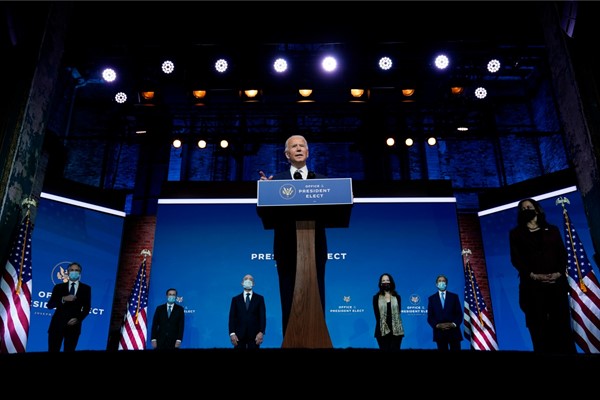During a long campaign that was, for both tactical and public health purposes, deliberately subdued, Joe Biden frequently offered a pithy, two-word answer to the question of how he would change America’s message to the world: “We’re back.”
Biden’s first major Cabinet choices were also intended to reinforce this theme, as literal returnees. People like Antony Blinken, Biden’s nominee for secretary of state, and other members of his national security team are all veterans of the Obama administration. Despite Biden’s evident comfort with the familiar, though, as I argued in one of my earliest columns for WPR, there will be no coming back for the United States—not if, by back, one means to the relatively exalted position the country still occupied before the election of Donald Trump. As I put it in September 2019, “When it is time for a new president to speak to the world, it won’t work to say, ‘We’re back,’ and simply reclaim global leadership.”
Even when Barack Obama’s presidency was at its most successful, a secular trend was already afoot involving a relative loss of American power in other parts of the world. The most obvious benchmark was China, as it accumulated and continues to amass wealth and power at a pace that far outstrips the stately evolution of the United States.

